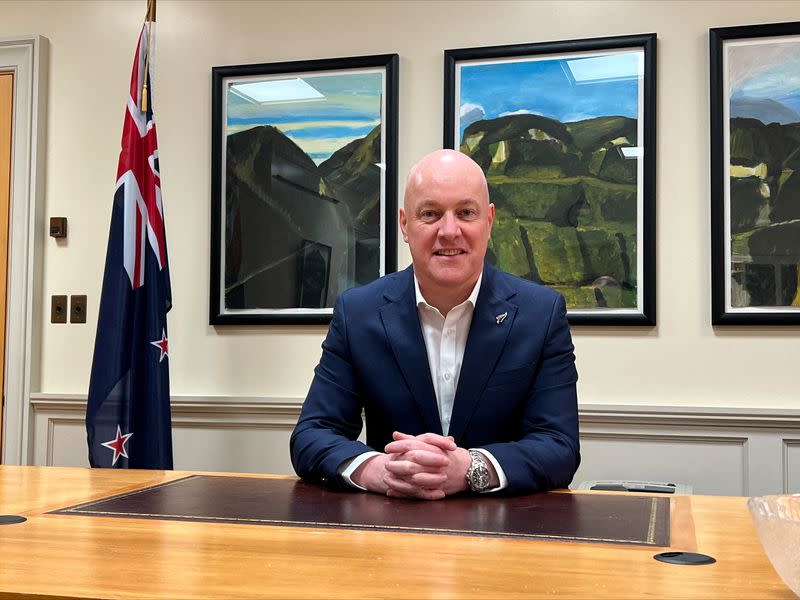New Zealand election campaign steps up with cost of living in focus
SYDNEY (Reuters) - New Zealand Prime Minister Chris Hipkins said campaigning ahead of the Oct. 14 election was just ramping up as parliament was dissolved on Friday, with opinion polls suggesting six years of centre-left Labour government were likely to end next month.
Higher living costs are set to be a central theme in the election after inflation surged to three-decade highs and interest rates rose sharply, with parties promising their policies would bring relief to voters.
Opinion polls show a coalition of conservative parties is favoured to govern after the election. This week, the Talbot Mills corporate poll showed support for Labour had fallen to 30%, a six-year low, while support for the National Party rose slightly to 36%.
That would put National in the stronger position to form a coalition government with one or more smaller parties.
Hipkins told reporters on Friday there were still many undecided voters.
Labour won an outright majority in the 2020 election, when it was led by the charismatic Jacinda Ardern and the handling of the COVID-19 pandemic boosted its popularity, but New Zealand's voting system favours coalition governments.
Labour's popularity has steadily declined this term and Ardern stepped down in January, saying she had "no more in the tank".
In addition to Ardern's departure and the economy's problems, the government has been hit by scandals that have seen three cabinet ministers resign.
National leader Christopher Luxon, a political newcomer and former CEO of Air New Zealand, told Reuters last month that he aimed to focus on containing inflation.
(Reporting by Renju Jose in Sydney; Editing by Gerry Doyle)



